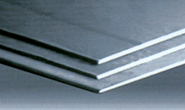Government/Policy

June 1, 2022
Commerce Adjusts Import Duties on Korean Plate
Written by Laura Miller
The US Department of Commerce’s International Trade Administration is adjusting the antidumping duty margins on imports of carbon and alloy cut-to-length plate from South Korea.
![]()
The agency is conducting an administrative review of the duties, evaluating the period May 1, 2020 through April 30, 2021, according to a Federal Register filing.
POSCO is the only Korean producer/exporter being investigated in the review.
The ITA has preliminarily determined a dumping margin of 2.8% for POSCO for the period of review. Although the margin is relatively low, it is still higher than the 0% rate set for the prior one-year period.
The all-others cash deposit rate for other Korean companies continues to be 7.1%.
The final results of this review will be determined by the end of September.
South Korea has historically been the top supplier of CTL plate imports into the US market, with only Canada supplying more in 2020 and 2021. Korea has supplied the most plate to the US so far this year, with 47,913 metric tons of plate shipments in the first three months of this year versus Canada’s 45,351 metric tons, according to ITA data.
South Korea’s annual hard quota on CTL plate is currently set at 202,530.628 metric tons. Once that threshold is reached, no more South Korean CTL plate can be brought into the US until the quota refreshes on Jan. 1, 2023. The absolute quota agreement has been in place since 2018 when the country was granted an exemption to the 25% Section 232 tariffs.
By Laura Miller, Laura@SteelMarketUpdate.com







